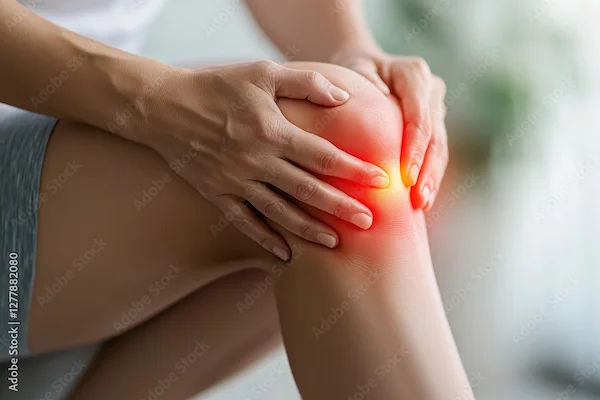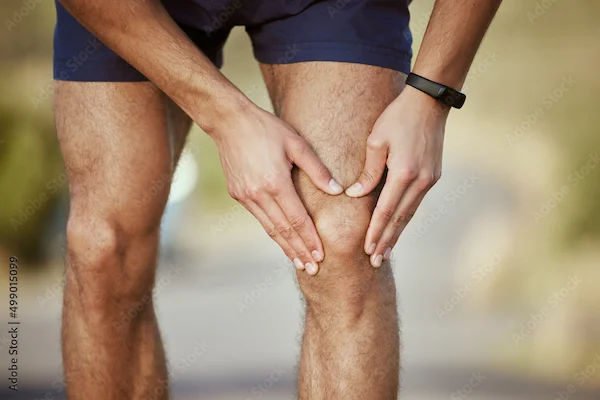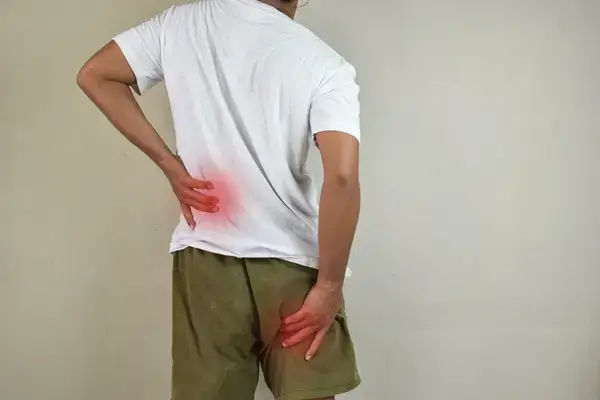How To Reduce Leg Muscle Pain?
Find effective ways to reduce leg muscle pain with home remedies, stretches, lifestyle tips, and when to seek medical help for lasting relief.

Written by
Last updated on 13th Jan, 2026
Introduction
Leg muscle pain is a common issue that can affect anyone, from athletes to those with a more sedentary lifestyle. Whether it’s due to overuse, injury, or an underlying condition, leg pain can be uncomfortable and disruptive to daily life. The good news is that there are several ways to manage and reduce this pain effectively.
Causes of Leg Muscle Pain
Leg muscle pain can occur for various reasons, including:
Overuse or Strain: Exercising too much or sudden physical activity can lead to muscle fatigue and soreness.
Injuries: Sprains, cramps, or tears in the muscles (like hamstring or calf strains).
Poor Circulation: Conditions like deep vein thrombosis (DVT) or peripheral artery disease (PAD) can cause leg pain.
Dehydration & Electrolyte Imbalance: Lack of fluids or low potassium/magnesium levels can trigger muscle cramps.
Medical Conditions: Arthritis, sciatica, or nerve-related issues may contribute to leg discomfort.
Symptoms of Leg Muscle Pain
The pain can vary from mild soreness to sharp, intense discomfort. Common symptoms include:
Aching or throbbing sensation
Stiffness or tightness in muscles
Swelling or tenderness
Muscle spasms or cramps
Difficulty walking or moving the leg
Effective Ways to Reduce Leg Muscle Pain
1. Rest & Recovery: If your leg pain is due to overexertion or injury, the first step is to rest. Avoid activities that strain the muscles further.
2. Apply Ice or Heat
Ice Packs: Help reduce swelling and numb sharp pain (apply for 15-20 minutes).
Heat Therapy: Relaxes stiff muscles (use a warm towel or heating pad).
3. Gentle Stretching & Massage
Stretching improves flexibility and reduces stiffness.
Massaging the sore area increases blood flow and eases tension.
4. Stay Hydrated & Maintain Electrolyte Balance: Drink enough water and consume foods rich in potassium (bananas, spinach) and magnesium (nuts, whole grains) to prevent cramps.
5. Over-the-Counter Pain Relief: Medications like ibuprofen or acetaminophen can help with pain and inflammation (consult a doctor before use).
6. Compression & Elevation
Wear compression socks to improve circulation.
Elevate your legs to reduce swelling.
7. Strengthening Exercises: Gradual strength training (like calf raises or squats) can prevent future pain by improving muscle endurance.
8. Check Your Footwear: Wearing supportive shoes can reduce strain on leg muscles, especially if you stand or walk for long hours.
When to See a Doctor?
While most leg pain improves with home care, consult a doctor if:
Pain is severe or persistent
There’s swelling, redness, or warmth in the leg
You experience numbness or weakness
Pain follows an injury or accident
Preventing Leg Muscle Pain
Ways to prevent leg muscle pain are as follows:
Warm up before exercise.
Stay active but avoid sudden intense workouts.
Maintain a balanced diet with essential nutrients.
Stretch regularly, especially after sitting for long periods.
Final Thoughts
Leg muscle pain can be caused by various factors such as overuse, dehydration, nutrient deficiencies, or underlying health conditions. Fortunately, with simple home remedies, proper stretching, adequate hydration, and rest, most leg muscle pain can be managed effectively. Incorporating regular exercise, a balanced diet, and proper footwear can also help prevent future discomfort. However, if the pain is persistent, severe, or accompanied by other symptoms, it’s important to consult a healthcare professional for accurate diagnosis and appropriate treatment. Taking timely action ensures quicker recovery and helps maintain overall leg health.
Consult Top Orthopaedician
Consult Top Orthopaedician

Dr. Mohammed Tanzeem P
Orthopaedician
5 Years • MBBS, MS Orthopaedics
Bengaluru
Apollo Medical Center, Marathahalli, Bengaluru

Dr Vivekanand D Hiremath
Orthopaedician
4 Years • MBBS, MS ORTHOPADICS
Bengaluru
Apollo One Electronic City, Bengaluru

Dr. Nagendra Prasad K
Orthopaedician
13 Years • MBBS,MS (Orthopedic Surgery- PGI- CHD), Fellowship in joint Replacement & Arthroscopy -Austria (Europ), F. Dip FM (Switzerland), PGDMLE -NLSIU, WRMSD-ERG ITALY
Bengaluru
Apollo Clinic, Electronic City, Bengaluru

Dr. Vishruta A V
Orthopaedician
5 Years • MBBS MS Orthopaedics
Bengaluru
Apollo Clinic, JP nagar, Bengaluru

Dr. Sushruth J
Orthopaedician
5 Years • MBBS, MS (ORTHOPEDICS),Fellowship in Arthroplasty,FRGUHS – Spine surgery,FIFA Diploma in Football Medicine
Bengaluru
Apollo Clinic, JP nagar, Bengaluru


